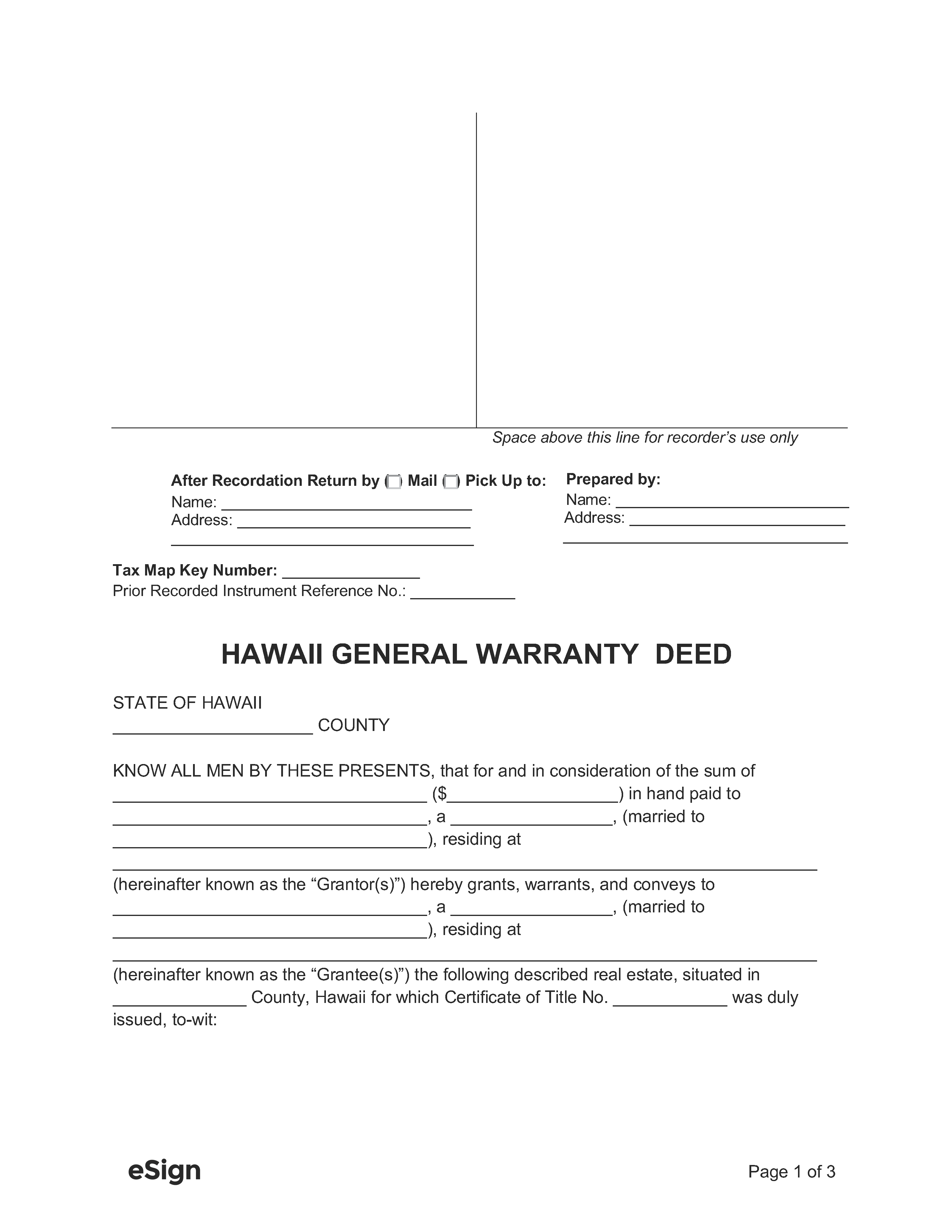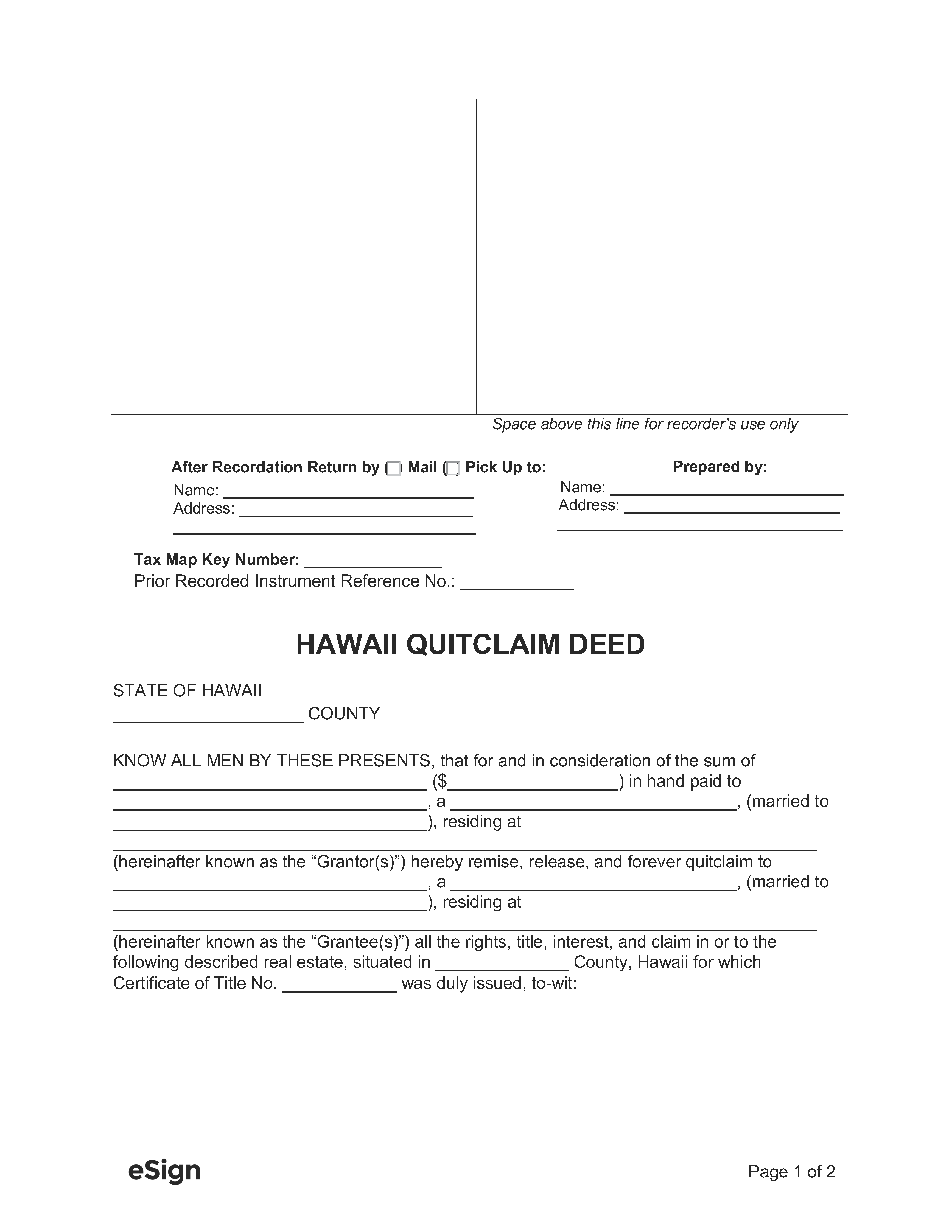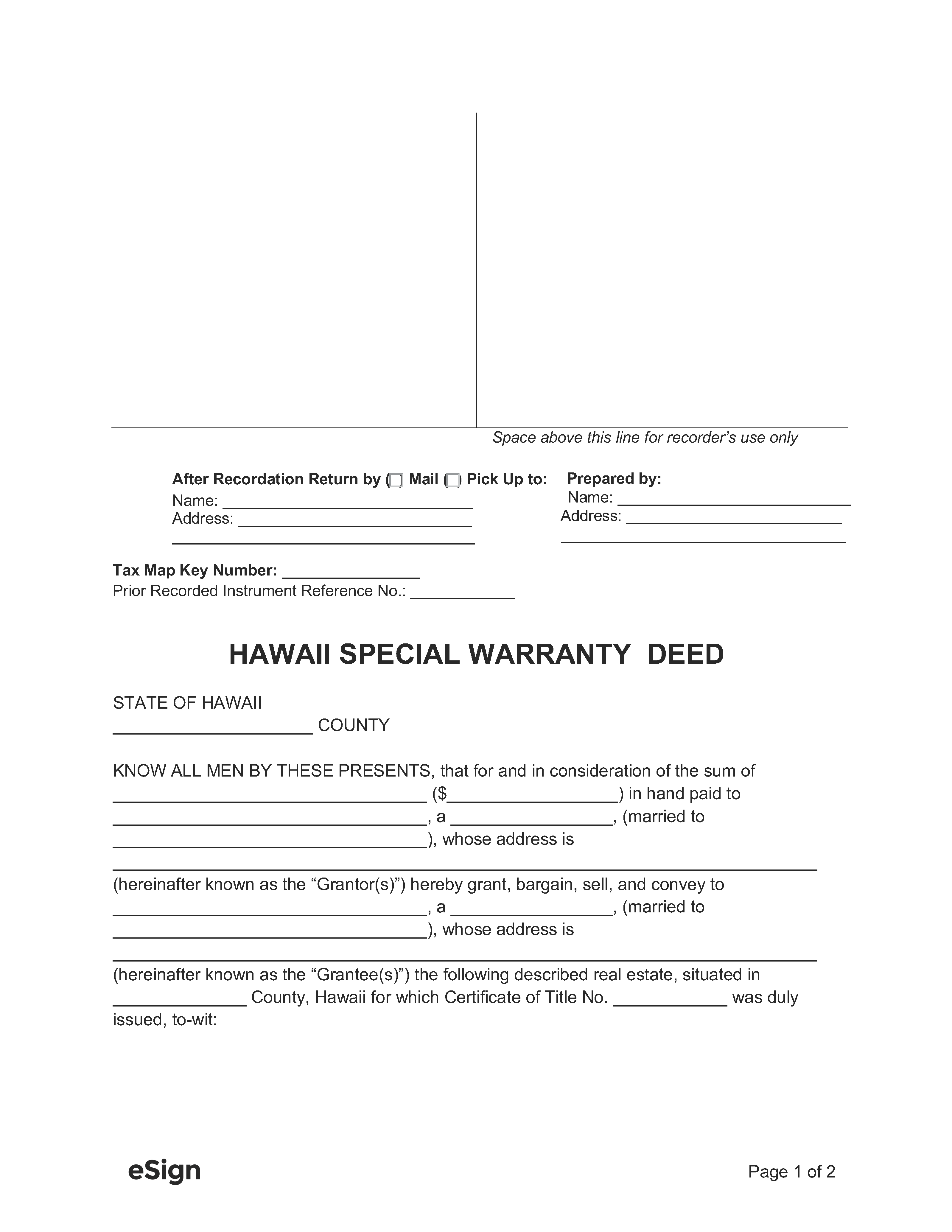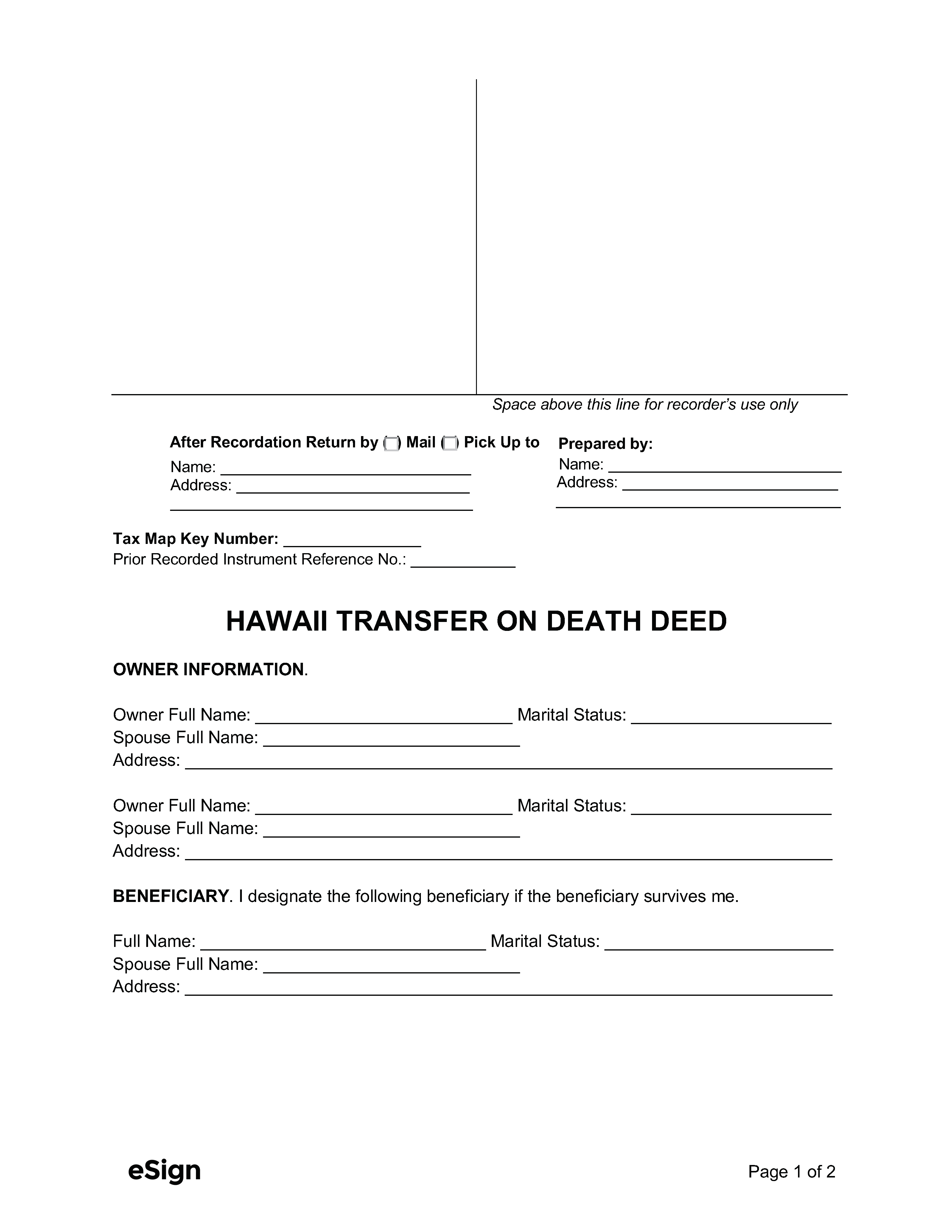By Type (4)
 General Warranty Deed – Guarantees that there are no liens or encumbrances on the property from its current and previous owners. General Warranty Deed – Guarantees that there are no liens or encumbrances on the property from its current and previous owners.
|
 Quit Claim Deed – Provides no assurance that the property being transferred is free of claims. Quit Claim Deed – Provides no assurance that the property being transferred is free of claims.
|
 Special Warranty Deed – Guarantees that the grantor did nothing to encumber the property title. Special Warranty Deed – Guarantees that the grantor did nothing to encumber the property title.
|
 Transfer on Death Deed – Prepares the property transfer from an owner to a beneficiary. Transfer on Death Deed – Prepares the property transfer from an owner to a beneficiary.
|
Formatting
Paper – No greater than 8.5″ x 11″
Margins – 3.5″ top margin on first page[1]
Recording
Signing Requirements – Must be signed in the presence of a notary public.[2]
Where to Record – The Hawaii Bureau of Conveyances is responsible for recording deeds in the state.[3]
Cost – Deed recording fees are as follows (as of this writing)[4]:
- Land Court: $36
- Regular System: $41
Additional Forms
Deeds must be filed with a completed Conveyance Tax Certificate (Form P-64A) unless exempt.[5]
If the conveyance is exempt, a Conveyance Tax Exemption (Form P-64B) must be filed with the deed instead.
See Instructions for Form P-64A & Form P-64B for more details.
